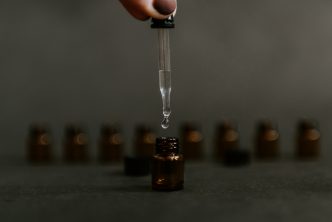Hearing loss can often be prevented and alleviated through simple dietary and environmental changes.
Breastfeed. The cheapest and most effective health insurance around. Babies who are breastfed for more than a year don’t seem to suffer from ear infections. Early bottle feeding is linked to recurrent otitis media, whereas longer breastfeeding (for at least six months) has demonstrated a protective effect (Acta Paed Scand, 1982; 71: 567-71). Another study found that children with middle ear infection had been breastfed for 8.6 months, while those in the study group without the condition had been breastfed for 13.7 months (East African Med J, 1993; 70: 623-3).Breastfeeding won’t guarantee that your child will never have an ear ache, but recovery may be more complete and more swift if you do. Breast milk contains copious amounts of gamma linolenic acid, which converts to prostaglandins, offering powerful anti inflammatory properties (Med Hypoth, 1984; 13: 161).
Nutrition. Cut down or cut out fats and sugars which can alter your vascular system and have a knock on effect on your hearing. Food additives such as sulphites and monosodium glutamate (MSG) can provoke ear ache. Try taking molybdenum to counter sulphite allergy and B6 for MSG allergy (J Orthomolec Psychiat, 1984; 105-10; Biochem Biophys Res Commun, 1981; 100: 972-77).
Investigate allergies. Ear ache is more than twice as common in allergic children than non allergic children (Laryngoscope, 1967; 77: 636). Cow’s milk, cocoa, cane sugar, cola, grains, citrus, eggs and nuts are the most common culprits, according to one study of 1000 patients (F Speer, Food Allergy, PSG Publishing Co, 1983). Allergy to salicylates may also be a cause (Am J Otol, 1989; 10: 256) The problem may be countered by avoiding aspirin and most herbs, spices and nuts, most fruits (except bananas, peeled pears, mangoes, pomegranates and papayas), most vegetables (except cabbage, Brussels sprouts, bean sprouts, celery, leeks, lettuce and peas), potato skins but not potatoes themselves, caffeine, fruit juices, alcohol and yeast rich foods such as Marmite.
Assess your environment. Airborne allergens such as house dust, tobacco smoke, animal hair and fungus spores have all been linked to ear infections (J Allergy Clin Immunol, May 1984). Lead and aluminium toxicity have also been associated with hearing loss.
Supplements. The cochlear needs vitamin A to stay healthy and functioning well (Arch Otorhinol 1978; 124: 379-82). Supplementation can improve hearing loss and tinnitus (Arch Otolaryngol 1951; May: 515-26. Combined with vitamin E it may be more effective (Acta Vitaminnol Enzymol, 1985; 7 Suppl: 85-92). Extra vitamin D may also reverse hearing loss (Otolaryngol Head Neck Surg, 1985; 93(3): 313-21; J Laryngol Otol, 1983; 97: 405-20).
Deficiencies in calcium, iron, magnesium, zinc, potassium and sodium have all been associated with symptoms of hearing loss and tinnitus.
Homeopathy. Pulsatilla can be helpful for middle ear infection (J AM Inst Homeop, 1986; 79: 3-4; Allgemeine Homeopathische Zeitung, 1985; 230: 89). Other remedies include Chenopodium for exposure to loud noise and Causticum for build up of ear wax; Phosphorus, China, Aconite, Arnica or Gelsemium can be used to treat deafness, depending on constitutional type.
Osteopathy or chiropractic. Occasionally recurrent ear ache can be caused by a mechanical problem at the top of the neck (Manuelle Medizin, 1987; 25: 5-10).
Stress management. Apart from lifestyle modifications, stress management and relaxation may be a more positive way to deal with the side effects of tinnitus. There is evidence that hypnotherapy can be helpful (J Laryngol Otol, 1996; 110: 117-20).





